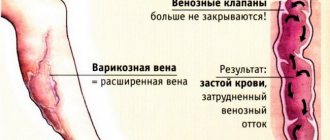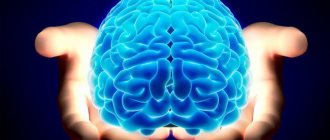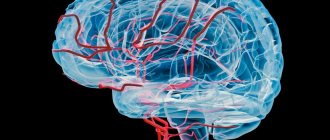Abulia is a pathological lack of will in a person. The word "Abulia" is of ancient Greek origin and consists of two particles a - the universal negative particle, and boulia - will.
The patient becomes extremely passive and uninitiative. All this happens due to lack of will. But what is will and what is its role in our lives?
Will is a very important mental function. Without it, we turn into passive, as they say, plants that cannot satisfy even their basic needs. It is an independent component of mental activity, and the most important component in the structure of the psyche for the implementation of many mental processes (memory, attention, thinking, motor activity). With the help of will, a person can control his behavior, take purposeful actions, satisfy his needs and move towards goals.
The first function of the will is incentive. With its help, we can take action, move towards a goal, provide for our needs and overcome obstacles that arise along the way. The incentive function manifests itself both in large-scale situations and in the most ordinary ones. The moment you get up from the couch to grab a bite to eat and the moment you spend years moving to the top of the career ladder - all this is an incentive function of the will.
But it is important to understand that not all human activity is dictated by will. For example, when a stone flies at you and you dodge it, this is not will, but a defensive reaction. This action of yours is determined by the situation that has arisen, and not by your will. The difference between volitional action is its arbitrariness and goal orientation.
The second function of the will is inhibitory. Its main task is to stop those desires and impulses that are undesirable for a person’s behavior in a particular situation. That is, with the help of volitional inhibition, a person can stop or prevent those of his actions that contradict his beliefs, worldview and upbringing. I.P. Pavlov believed that volitional inhibition requires more significant effort from a person than active action.
Etiology and pathogenesis of the disorder
Typically, symptoms of abulia can manifest in people with weak mental health who are prone to various somatoform disorders.
Abulic syndrome can manifest itself during disorders in the blood circulation of the right hemisphere of the brain in the frontal part. This usually occurs due to traumatic head injuries or some serious brain disease.
The pathogenesis of abulia is associated with a decrease in dopaminergic neurotransmission in the frontal lobes of the brain. These lobes are responsible for the purposeful motor functioning of the body, the ability to manifest initiative processes, systematic activity, which is aimed at performing certain functions and overcoming difficulties.
Typically, patients with disorders of the frontal part of the brain experience a state of inertia and inactivity.
Most doctors and specialists note that the main factor that provokes the manifestation of abulia is stress.
The presence of abulia leads to the deprivation of the main factor of a person’s full existence - he ceases to be a person. This is due to the fact that this disorder contributes to the disappearance of a person’s motivation, which provokes him to perform functions to achieve his cherished goal.
Such pathological spinelessness is especially dangerous in childhood. Many parents may simply not notice the presence of this disorder in their child and mistake it for a character trait - laziness, apathy, weakness of will.
The most difficult is considered to be hereditary abulia, which occurs in children from the moment of birth. Many parents are happy when their child is very calm, quiet, and sits in one place for a long time, instead of running and playing. And this condition should cause concern in parents and be the first factor for conducting an appropriate examination.
Diagnosis and treatment
The main way to diagnose abulia is observation, since this disorder can manifest itself in behavior. With this disorder, the clinical interview method will not bring serious success, since the patient will answer slowly and will not be able to remember everything. Therefore, to collect reliable data, they often conduct a conversation with the patient’s family or close friends.
It is also important to study the medical history, as this can also help in identifying the causes. Among the medical methods, tomography is distinguished; it allows you to “see” disturbances in the functioning of the brain.
It is most difficult to diagnose this disorder at an early age, since many may mistake a child’s resistance to a parent’s requests for a lack of energy. Here it is important to observe the child for a long time, to pay attention to whether he shows interest in games, sweets, spending time with friends, how much time it takes him to perform this or that action. All these data should be compared with the typical behavior of the child, and not with the behavior of other children.
If we talk about treatment, then it would be natural to treat the underlying disease, the consequence of which is abulia. This can be either drug treatment or complex psychotherapy.
Of the psychotherapeutic methods and techniques, most specialists offer the following:
1. Motivation of a person to act, based on his past experience. Here, in order to “remember” past motives and needs, both journaling and a hypnotic state are used.
2. Gradual introduction of a person into an active life. There are two main mistakes that parents make when faced with symptoms of abulia in their child:
- Parents indulge the child, do not touch him, allow him to remain in apathy and do nothing. This behavior will be a positive stimulus (the child will feel that his apathy is something right and natural) and will accelerate the development of the disease.
- Parents, on the contrary, sharply pull the child back, force him to do something through force and scold him for laziness. In addition to the fact that the child’s disorder will progress, a guilt complex will also form.
Thus, a gentle introduction of a person, a child, into life will be most optimal. Also, it is important not to forget about positive motivation, praise, and so on.
Preventing the development of abulia
Therefore, preventive measures are relevant in every age period:
- Elderly people need confidence in their relevance, need, and that they can be useful to their relatives. It is from such positions that the desire to do something, to provide assistance arises;
- For the younger generation and middle-aged people, interest in life will not disappear when they have activities to their liking and various hobbies.
Excessive care of relatives for the patient can only harm him. Often this consists of exclusion from participation in common events and joint work. Relatives try to predict and fulfill any desire. This imaginary concern will only provoke further progress of the disease. The tactics of relatives should be structured in such a way that the sick family member shows as active a life position as possible
And it doesn’t matter what it will be connected with - rest or work. This is the only way to get out of this mental state.
How to deal with abulia?
What is important to know? Abulia is a psychological disease, not a psychiatric one. It does not require sedative injections, confinement in a hospital, etc.
n. Psychologists divide abulia by age.
Senile abulia develops in older people. The cure for it is love and care. Old people often feel like a burden, which is what gives rise to this condition. You should show a person that he is valued, loved and valued.
In middle age, abulia develops due to the monotony of life. A person lacks emotions. Disappointment in your entire life may also follow. Psychologists advise expanding your horizons. Take up a new business, find a hobby and passion.
As for childhood abulia, its treatment should be carried out exclusively with the help of a specialist. The child's psyche is quite fragile, and any lack of restraint by parents or the wrong approach can lead to the development of even greater problems.
Combination of abulia with other syndromes
Forms of abulia can be mild and temporary, which are accompanied by minor deviations, reduced motivation, as well as more severe, up to complete suppression of will. In an extreme form of lack of will, there may be no desire to perform basic actions - get out of bed, wash, and so on.
Syndromes that accompany abulia:
- A syndrome of depressive and asthenic type, which is accompanied by elements of adynamia, neuroses, and psychopathic disorders. During this disorder, a short-term absence of volitional impulses and loss of activity occurs.
- Abulia of periodic type. This form often occurs in drug addicts, alcoholics, in patients with severe somatoform disorders, in patients with schizophrenia. Repeated periods of lack of will may occur, as well as psychoses of the manic-depressive type.
- Catatonic syndrome and stupor. This form is characteristic of schizophrenics, and also manifests itself in severe organic brain damage. In this condition, there is a constant lack of motivation and volitional impulses.
- Abulia can often be combined with mutism - a complete lack of desire to talk. Verbal contact with patients is disrupted, and it is impossible to get answers to questions from them.
- Apato-abulic syndrome. With this syndrome, emotional insufficiency and automaticity of movements occur. Patients experience complete withdrawal into themselves, they have a lack of desire to communicate, they show with their appearance complete indifference to the interlocutor, to close people, they have a complete loss of interest in their favorite activities and entertainment.
- Abulic-akinetic syndrome. With this disorder, there is a combination of lack of will with partial or complete immobility. This may often be accompanied by inhibition in the thinking process.
Provoking reasons
The causes of apato-abulic syndrome are the following factors:
- other mental illnesses, most often the syndrome accompanies a disease such as schizophrenia ;
- brain damage due to atrophy, tumors, head injuries, internal hemorrhages;
- mild forms of pathology can be observed in people who are in a borderline state and are unable to tolerate stressful situations;
- Also recently, scientists have argued that the syndrome may occur due to impaired release of the hormone dopamine in the body .
As practice shows, simplex syndrome often occurs in schizophrenia and can develop as part of this pathology. An interesting fact is that in women, schizophrenia occurs in the form of apatho-abulic disorder, accompanied by hallucinatory delusions.
There are two types of loss and decrease in activity in patients with schizophrenia:
- the patient’s lack of motivation and independence, inhibition of reactions;
- stereotypic behavior and loss of ability to switch.
Types of violation of will
Abulia is an extreme state of impaired will. When a person no longer wants to decide anything. Even those things that were previously important to him become indifferent.
But this condition can be prevented if you notice it at the initial stage, which is called hypobulia. At this stage, a person begins to change, and close people can notice this if they pay enough attention. First of all, appetite is lost, and the patient begins to fade away, painful facial features appear. Sexual desire decreases, a person stops usual activities. For example, those who like to read give up their habit and just sit, looking out the window.
General information
The study of abulia has been carried out since 1838. Currently, experts consider abulia as a symptom of other diseases and mental disorders, although there are attempts to consider this condition as an independent nosological unit.
Abulia, in which the patient feels a partial or complete lack of desire for any activity, is between:
- apathy - a psychotic state, which is accompanied by a lack of desire for any activity, an indifferent and detached attitude to what is happening around;
- akinetic mutism - a rare condition in which the patient practically does not speak or move, although such a possibility exists from a physical point of view (understanding of the surrounding reality is preserved, the patient follows the people around him with his eyes and finds the sources of sounds).
Abulia is distinguished from weak-willedness and laziness by the awareness of the need for any actions and the inability to force oneself to perform them (laziness and weak-willedness can be fought with the help of training and self-discipline, but with abulia this is impossible).
Since abulia is not an independent disease, its prevalence has not been described. It is believed that this symptom is detected quite often, since the main risk factors for its occurrence include depression, a common condition in countries with a high standard of living.
Possible complications
Patients cannot cope with such a disease on their own and get out of the state of prostration, so they need constant care and reminders.
Without quality care and therapy, the following complications are possible:
- complete degradation of personality;
- the occurrence of skin diseases;
- intestinal inflammation;
- death.
Abulia is a serious pathology and requires full patient care.
Symptoms
The main signs of the disease are:
- 1. Inhibition in all areas of activity - conversation, thinking, movements.
- 2. Social isolation and difficulty making contact with people.
- 3. Neglect of hygiene rules, sloppiness.
- 4. Difficulty in making decisions.
- 5. Motor and speech passivity.
- 6. Loss of interest in communicating with other people and favorite activities.
- 7. Spontaneity of actions.
- 8. Impaired coordination of movements and their stiffness.
- 9. Indifference to everything around you.
- 10. Lack of experiences and emotions.
- 11. Pessimism.
- 12. Unreasonable fatigue.
- 13. Decreased appetite.
- 14. Sleep disturbance, insomnia.
- 15. Memory impairment.
- 16. Lack of facial expressions.
- 17. Inability to make independent decisions.
Clinical picture and symptoms
Psychotherapists and neurologists note that during abulia there often appears a pathological reluctance to show interest and effort in various, sometimes necessary actions or previously favorite activities, or there is a complete decrease in the energy level of volitional signs.
Other characteristic clinical symptoms of abulia:
- the patient looks sloppy and untidy;
- movements are slow, inhibited and uncoordinated;
- there are problems with speech and emotional manifestations, speech is often slow;
- the patient has a complete lack of desire to communicate with other people, friends, close relatives, they experience social isolation;
- speech becomes scarce, facial expressions disappear;
- there is a closed state, lack of activity;
- a person cannot make a decision on his own;
- loss of interest in all activities and entertainment that were previously favorite;
- Before answering the question posed, a person can think for a long time and remain silent.
Main signs of the disease
Abulia has been subjected to many descriptions. This disorder became known in 1938, but there is still no clear picture of the disease. Among the clinical manifestations the most basic are:
- speech retardation;
- spontaneous movements;
- difficulty in performing specified movements;
- suppressed emotionality;
- isolation;
- children lose interest in games;
- passivity and indifference.
The very first symptom of the disease is indifference to oneself. A person does not wash his face, does not brush his teeth, and completely neglects his appearance. A patient with abulia thinks for a long time about the answer to the simplest questions, but does not seem to control his own hands or jerks his head. Often patients lose a lot of weight due to loss of appetite. The disease can manifest itself in a mild form and very quickly progress to a deep state of depression.
It should be noted that the incentive to action is so reduced that even with deep mental suffering and thoughts of suicide, a person is not able to harm himself. He simply has absolutely no strength for this.
How to determine?
This disorder has a number of signs that make it possible to understand that the patient has abulic syndrome. It is also worth paying attention to the fact that abulia is not an independent disorder, it is a consequence of other, more serious diseases.
How does abulia manifest itself, its main symptoms:
1. A person loses interest in his appearance. If in ordinary life in most cases we try to look good, then with abulia the patient does not care, he does not have the strength, desire and motivation to somehow maintain a good appearance. A person may wear dirty clothes, not wash his face, not comb his hair, and be completely indifferent to the recommendations of others about the need to change clothes.
2. Patients are characterized by slow speech, with long pauses, and a detached gaze; also, the person does not ask questions, does not show himself in the conversation. There is a feeling that the person does not have the strength to speak, or that he thinks about each phrase for a long time. In fact, this is due to apathy and an internal lack of energy even for conversation.
3. There is a loss of appetite and interest in the process of eating something. Interest does not come even if a person is offered his favorite dish.
4. A person moves slowly, tries to remain motionless more. Gets up and moves only when absolutely necessary (for example, to go to the restroom); the rest of the time he can simply lie down or sit without moving.
5. The patient reduces social contacts, tries not to communicate with people, does not answer calls or messages on social networks. Does not show interest in meetings, does not come to the door if someone comes to visit.
6. Abulia can also manifest itself in sleep disturbances (usually insomnia). Due to the fact that a person does not expend energy, he cannot fall asleep and remains awake for a long time, but at the same time feels tired.
7. Problems arise with thinking, it becomes viscous, and it is difficult for a person to concentrate on something for a long time. Functions such as memory, especially short-term memory, are also affected.
All of these symptoms are accompanied by general pessimism, lack of desire to take action, and resist circumstances. Therefore, abulia often leads to dependence on the people with whom the patient lives.
As mentioned above, abulia is a disorder that accompanies various diseases, mainly associated with brain dysfunction. These can be either brain injuries (especially the frontal lobes), or the consequences of a stroke, tumors or Parkinson's syndrome. Thus, when signs of abulia appear, it is important to do a full examination to find out all the reasons.
Abulia is a syndrome that also often manifests itself in older people, usually against the background of senile diseases. But people of all ages can be susceptible to it, although the risk group mainly includes the elderly and children (younger and adolescents).
Main symptoms and signs of the disorder
The key manifestation of the syndrome under study is such personal changes as emotional impoverishment and a significant decrease in vital activity. Pathological signs do not appear immediately. They are characterized by gradual and slow progression. Often, the patient and the people around him do not even pay much attention to these moments at first, and the first “alarm bell” sounds when the disease has progressed quite significantly.
It all begins, as a rule, with the patient’s loss of interest in any kind of activity and communication with other people. Old hobbies become indifferent, new ones do not appear. The patient does nothing, simply “killing time.” At first he goes to school/work, but he does it mainly for the reason that “it’s necessary”
Over time, attention to these activities is completely lost
Features of the emotional background
A person becomes indifferent to everything and everyone around him, losing the ability to empathize with loved ones and rejoice at the successes in their lives. If the patient had a partner, interest in her is lost, and hostility may even develop.
The patient becomes alienated and leads an isolated lifestyle: any contacts with society are minimized, and it becomes impossible to bring the patient into a full-fledged conversation.
Physiological manifestations
- Facial expressions disappear.
- The voice becomes indifferent, there is no emotional coloring.
- Autonomic reactions (meaning such moments as sparkle in the eyes, redness with embarrassment, etc.) are absent.
Tendency to affective behavior
Many patients develop an interest in things and a tendency to do things that would cause nothing but disgust in a healthy person. For example, many patients stop taking basic care of themselves, become prone to sudden manifestations of causeless aggression, lose the ability to clearly formulate and express their thoughts, trying to limit themselves to formal monosyllabic answers.
Motor skills
Obsessive movements and actions are noted, for example, laughing, rubbing hands, frequent coughing, tapping on various surfaces, etc.
Diagnosis of apato-abulic syndrome based on the main features To make a diagnosis, the doctor evaluates the patient’s condition according to a number of criteria.
- Complaints. If in the case of most diseases, diagnosis begins with listening to the patient’s complaints, then in the presence of a disorder such as apato-abulic syndrome, the patient by default does not complain about anything. And only if the person interested is persistent, can a person confirm that he has problems formulating thoughts, concentrating, etc.
- Emotions. The patient becomes cold and indifferent even to the closest people. As a rule, there are signs of inadequacy.
- Features of motor skills, facial expressions, voice. Conversations are not emotionally charged. From time to time, facial expressions become rude and threatening. The most common feature of motor skills is the patient's prolonged examination of the hands.
- Activity. The patient becomes much less active than before. Bursts of energy are periodically noted, but they do not last long and appear less and less often.
- Aggression. A person with a disorder such as apato-abulic syndrome periodically displays aggression both towards close people and towards strangers.
- Interests. The circle of such people is rapidly narrowing and over time is limited to only delicious dishes.
- Social behavior. The patient becomes alienated and seeks to retire more and more often.
- Thinking. The disease is accompanied by disruption of normal intellectual functions. There are difficulties with the formation of thoughts and their presentation.
- Sexual activity. Patients, as a rule, limit themselves to self-gratification; various manifestations of shameful behavior are possible.
- Attitude to study and work. As the disease progresses, the patient shows less and less interest in these activities.
- Attitude towards loved ones. Interest in such matters gradually fades away, and aggressive attacks are possible. The same applies to friends.
- Hygiene, personal care. The problem gradually progresses from elementary sloppiness to gross uncleanliness.
Forms of the disorder
Unlike ordinary weakness of will, which is caused by improper upbringing, apraxia and abulia are directly associated with a lack of willpower, spinelessness, laziness and lack of will by lesions of the brain structure. With lesions of the frontal lobe, apraxia occurs.
There are several forms and types of abulia that make it possible to classify this disease. Psychological analysis identifies two main stages of the severity of abulia.
- Easy. There are slight deviations from normal behavior, a slight lack of will and motivation. At the same time, a person experiences a state when it is possible to involve him in activity.
- Heavy. This condition is accompanied by a complete refusal of any action and suppression of volitional impulses. The pathology is characterized by the fact that the patient is unable to perform even the most basic tasks, such as standing up, washing his face or eating.
There are several types of volitional disorder:
- hyperbulia;
- parabulia;
- hypobulia;
- abulia.
Hypobulia is a significant change in the number of motives required to perform a particular action. Hypobulia is a condition in which it is extremely difficult for a person to find the strength within himself and force him to complete a particular task.
Hyperbulia, in contrast to this type of volitional disorder such as hypobulia, has a main characteristic symptom. Hyperbulia is characterized by the fact that there is increased activity or hyperactivity, but the person very quickly loses interest in the goal.
Parabulia is behavioral deviations directed against existing norms of behavior.
As for abulia, it is defined as a state of pathological lack of will to commit actions. Weakness of will or violation of the volitional sphere, if you like.
Forms of the disorder
Unlike ordinary weakness of will, which is caused by improper upbringing, apraxia and abulia are directly associated with a lack of willpower, spinelessness, laziness and lack of will by lesions of the brain structure. With lesions of the frontal lobe, apraxia occurs.
There are several forms and types of abulia that make it possible to classify this disease. Psychological analysis identifies two main stages of the severity of abulia.
- Easy. There are slight deviations from normal behavior, a slight lack of will and motivation. At the same time, a person experiences a state when it is possible to involve him in activity.
- Heavy. This condition is accompanied by a complete refusal of any action and suppression of volitional impulses. The pathology is characterized by the fact that the patient is unable to perform even the most basic tasks, such as standing up, washing his face or eating.
There are several types of volitional disorder:
- hyperbulia;
- parabulia;
- hypobulia;
- abulia.
Hypobulia is a significant change in the number of motives required to perform a particular action. Hypobulia is a condition in which it is extremely difficult for a person to find the strength within himself and force him to complete a particular task.
Hyperbulia, in contrast to this type of volitional disorder such as hypobulia, has a main characteristic symptom. Hyperbulia is characterized by the fact that there is increased activity or hyperactivity, but the person very quickly loses interest in the goal.
Parabulia is behavioral deviations directed against existing norms of behavior.
As for abulia, it is defined as a state of pathological lack of will to commit actions. Weakness of will or violation of the volitional sphere, if you like.
How does abulia occur?
In most cases, the disorders that cause abulia do not occur on their own out of nowhere.
This pathological disorder of the nervous system is a manifestation of apathy
As a rule, there are some accompanying factors, which may include the following:
- a brain tumor;
- stroke disease;
- head injury;
- cerebral hemorrhages;
- influence of toxic substances;
- disruption of the normal level in the brain of the hormone responsible for joy and pleasure (dopamine).
Injuries that cause damage to certain areas of the brain, for example, those responsible for motor activity or abstract mental activity, impair the individual's ability to activate movement, speech activity, or social interaction. These symptoms are associated with damage to both halves of the frontal region of the head, because this is where the brain centers responsible for movement, independence, and the ability to regulate one’s behavior are located.
Establishing diagnosis
Abulia is not a separate disease; it is usually a consequence or symptom of some neurological or psychological disorder.
The main methods used to make a diagnosis:
- to begin with, the doctor conducts a survey and tests the patient, due to this he compiles a general history and establishes the presence of various concomitant diseases;
- Magnetic resonance imaging is performed;
- computed tomography is prescribed;
- ultrasound examination is prescribed;
- electroencephalography of the brain is performed;
- You definitely need to take a general blood test.
Abulia
One of the signs of apathy is considered to be abulia - lack of will, weak character, passivity. This state is characterized by a lack of volitional motivation, complete inaction even to satisfy basic needs, lack of initiative, and disinterest in anything. If previously a person could be interested in something, now even favorite activities and hobbies do not bring a joyful state.
Abulia is considered not just a pathological condition, but also a mental disorder, since sometimes it has completely physiological reasons for its occurrence.. If you notice the first signs of abulia or someone close to you suffers from this condition, then you should solve the problem and not let it go on its own.
Abulia must be distinguished from other conditions. - depressed mood. If there is a combination of depressed mood and lack of will, inaction, then apathetic-abulsic syndrome occurs. The first signs appear on the first day. A person stops performing actions, his productivity drops sharply to zero. There is a lack of emotionality here. The person doesn’t feel anything, doesn’t want, doesn’t worry. Nothing worries him. This should be distinguished from the inability to feel or do anything. Abulia is the absence of desire, and impossibility is something else.
If a person stops performing any actions, that is, is completely immobilized under the influence of his condition, then we are talking about abulic-akinetic syndrome (catatonic stupor). When translated from ancient Greek, “abulia” means “there will be no action.” We are talking about a state when a person loses motivation and the will to act.
This disorder is dangerous at any age. It spares neither the young nor the elderly and can develop in anyone, even if mental pathologies have not been observed before.
Treatment of abulia
Depending on the causes of abulia, one or another course of treatment is prescribed. Specialists take a comprehensive approach to the problem when not only medication, but also psychological help is needed. If the cause is psychological, then it is eliminated. If the cause is a dysfunction of the brain, then medications are used.
You should get rid of abulia in a comprehensive manner:
- Find something interesting to do. Since a person has problems with interest, he must overcome this barrier.
- Lack of self-pity. Often abulia becomes a problem due to the fact that people cherish this condition within themselves. Support, sympathy, understanding - all this only harms the patient.
- Involvement in common activities or entertainment. You cannot get rid of abulia without the support of loved ones. The patient should be invited to joint feasts and entertainment events. You should also ask him for help, emphasizing that without him you will not be able to do anything.
Often the patient may feel unwanted. This is often observed in older people. In this case, you should offer to take part in your life. Relatives, their attention and spending time together, can cure abulia.
In severe cases, you cannot do without medication. Here only specialists decide how to help the patient. In addition, psychotherapeutic and psychoanalytic work is carried out with the patient. Antidepressants, antipsychotic drugs, and atypical antipsychotics are often prescribed, and a rehabilitation program to stimulate parts of the brain is also carried out.
If abulia is a consequence of a mental disorder or physiological disease, then treatment should be aimed at eliminating the cause. Abulia is a consequence that will go away if the cause is eliminated.
Symptoms of abulia
In medicine, the study of abulia has been going on for a long time; doctors became interested in the characteristics of the disease back in 1838, and therefore its symptoms have now been defined. Although, experts had to deal with descriptions that sometimes contradict each other. This disease is described as loss of speech and behavior, accompanied by decreased initiative, prolonged speech delay, and spontaneity of the thought process. In addition, signs that are considered clinical for abulia are highlighted.
In particular, the patient makes spontaneous movements, difficulties in maintaining movements of a certain direction, passivity. In addition, with abulia, a person thinks for a longer time before answering a question, emotional response decreases, and interest in matters that previously seemed paramount disappears.
In some cases, you may notice that a person suffering from abulia chews food for a long time without swallowing, or, after starting to eat, he quickly loses his appetite and refuses to eat. Such symptoms should be checked several times to make sure that the person still needs food and is hungry. To ensure the necessary interest in food and proper nutrition, experts recommend using sweet dishes and seasonings.
It is important that with abulia, a person is well aware that certain actions are required of him in this situation, but he cannot force himself to do the right thing. Sometimes it happens that a person is not even able to move.
A sign of abulia can also be considered the phenomenon of indifference to one’s own appearance. The patient is too lazy to wash his face, wash his hair, he doesn’t want to brush his teeth, change his underwear, etc.
Abulia: concept, types, symptoms
Abulia or lack of will is a psychopathological syndrome and a state of pathological lack of will, when a person is not able to perform the necessary actions, although he is aware of such a need. People who suffer from abulia describe the condition as an inability to move from desire to action due to a lack of internal energy. Abulia manifests itself as general lethargy combined with a lack of initiative and motivation to act.
In addition, symptoms of abulia include :
- Difficulty in starting and continuing purposeful movements;
- inability to make decisions;
- decreased social contacts;
- passivity and decreased interest even in leisure, games, and entertainment;
- paucity of gestures and speech;
- decreased or absent emotional reactions;
- unexplained sudden body movements;
- long pauses before answering a question;
- uncleanliness and inattention to one’s own appearance;
- loss of appetite.
Abulia is a condition in terms of loss of motivation that is between apathy and akinetic mutism (a disease in which a person does not speak or move, although he is physically capable of this).
Depending on the causes, abulia can be a short-term phenomenon, periodically recurring, or a permanent condition. Abulia occurs in children, adults and the elderly. Abulia happens :
- congenital, observed with profound degrees of mental retardation;
- acquired as a result of depression, psychosis, schizophrenia, dementia, after a stroke, neuroinfections, traumatic brain injuries, as well as other mental and neurological disorders.
Scientists agree that the development of abulia is caused either by damage to certain areas of the brain (mainly the frontal lobe) or by insufficient blood supply. In addition, abulia can be caused by alcoholism and drug addiction.
The disease can also arise for a purely psychological reason: a person feels useless and forgotten by everyone, and therefore loses all interest in life. In this case, the patient is helped by regaining responsibility for his own life and realizing the need and importance for the environment. In all other cases, a more thorough diagnosis and an integrated approach to treatment will be required.
Main signs of the disease
Abulia has been subjected to many descriptions. This disorder became known in 1938, but there is still no clear picture of the disease. Among the clinical manifestations the most basic are:
- speech retardation;
- spontaneous movements;
- difficulty in performing specified movements;
- suppressed emotionality;
- isolation;
- children lose interest in games;
- passivity and indifference.
Such actions are unacceptable. You should not feel sorry for the patient, but shake him thoroughly. There is no need to give the opportunity to hide and withdraw into yourself. Keep the patient occupied with whatever you want. It is best to do something together so that the person feels close and at the same time under observation. For example, cooking together, coloring pictures, various crafts when it comes to children.
Be attentive to yourself and your loved ones!
Every person has at least once experienced a temporary lack of willpower, when they don’t want to do anything at all or there is not enough motivation to complete a certain task. But how to distinguish banal weakness, laziness, apathy from abulia - a disease that may indicate the presence of a mental disorder? Abulia or weakness of will? You will find the answer to this question in the article.
Will
- this is a person’s ability to consciously act in the direction of a set goal, overcoming internal and external obstacles.
The basis of volitional behavior is a complex psychological mechanism
, including:
- Mediocrity. Volitional behavior is not situational or impulsive, but is defined as a means to achieve a goal.
- Internal intellectual plan. Volitional actions are performed deliberately; Thinking is involved in making a decision to take one or another step.
- Conscious regulation of activity. This is a function of the will, which consists in controlling conscious decision-making that determines the future course of life.
Will is also the source of human activity. When problems with volitional self-regulation appear, the individual becomes passive, lacking initiative; roughly speaking, he moves from the level of life activity to the level of existence.
Will develops in ontogenesis. Its first manifestations can be seen when the baby begins to control his movements in order to achieve what he wants. Only by the end of preschool age will the will develop to a level where the child is able to set a task for himself and persistently and purposefully carry it out.
Formation of will
is carried out not only due to the development and growth of the child, but also under the influence of parental education and, later, self-education.
Weak will
is a sign of flaws during upbringing, which can be eliminated through self-education.
A strong-willed person is said to be a “person of character.” Absolutely all people have character, but well-developed willpower makes a person a strong-willed person, and poorly developed willpower makes a person weak-willed and weak-willed.
Weakness is not a lack of will, but only its insufficient development. Weakness as a spiritual and moral quality of a person is called cowardice
It is important to note that weakness of will is considered a negative personality trait, since a person who has every chance of developing willpower and does not do so independently worsens the quality of his life
A weak-willed person suffers from a lack of stamina, perseverance, determination, independence, as well as from laziness, boredom, idleness, apathy, from the fact that he is easily controlled by other people, succumbs to manipulation and various kinds of temptations, but at the same time does nothing to change his character. Yes, a person can be weak-willed due to the innate characteristics of higher nervous activity (for example, melancholic and sanguine people are more susceptible to weak-willed people), but this does not exclude the possibility of developing the will through self-improvement.
Willpower as the ability to consciously control actions and emotions is developed
through systematic training. It is formed like any other habit. You need to pull yourself together and engage in self-education.
Of course, such work cannot be called easy, but by improving the will
, a person develops:
- determination,
- determination,
- perseverance,
- courage,
- endurance,
- independence and other strong-willed qualities that promote personal growth.
It’s one thing to fight laziness, which is a lack of hard work or apathy as a protective mechanism of the psyche during nervous overloads and other manifestations of character weakness; it’s another thing when there is no will due to an existing or developing pathology.











